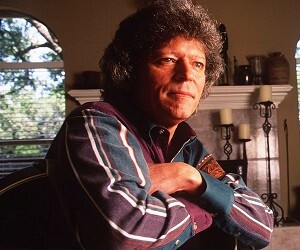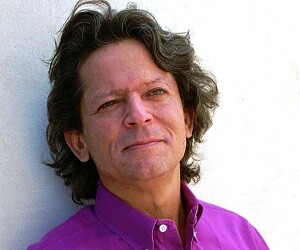

Last Updated: 14 May, 2025 | Views: 4155
Age: 73
Profession: Singer
Other Profession(s): Song writer
Famous For: The hits “Ridin' My Thumb to Mexico” and “You Always Come Back (to Hurting Me).”
About (Profile/Biography):
Johnny Rodriguez broke barriers as the first major Mexican-American country music star, charting 15 top-ten singles between 1972-1978. Born in Texas to a working-class family, his distinctive blend of country music with Latin influences earned him a devoted fanbase across cultures. Despite personal struggles, Rodriguez maintained a successful career spanning five decades, becoming an influential figure for Latino artists in country music.
Early Life of Johnny Rodriguez
• Born Juanito José Rodríguez on December 10, 1951, in Sabinal, Texas, "Little Johnny" grew up in a town of just 1,800 people near the Mexican border, discovering music through his father's collection of Mexican folk records.
• At age 16, Rodriguez was sentenced to a work farm for poaching deer on a neighboring ranch, where prison guard and country musician Bobby Flores discovered his talent and helped launch his career.
• The young artist supported his family financially after his father died when Johnny was just 12, often hunting illegally to put food on the table and working odd jobs throughout his impoverished youth.
Career Breakthrough for Johnny Rodriguez
• Tom T. Hall discovered Johnny singing in a jail cell in 1971 and brought him to Nashville, where the young performer quickly signed with Mercury Records and released his first hit "Pass Me By" the following year.
• "Ridin' My Thumb to Mexico" became Rodriguez's first #1 hit in 1973, establishing him as a unique voice in country music with his ability to seamlessly incorporate Spanish lyrics into mainstream country songs.
• The talented vocalist charted an impressive 45 singles on the Billboard country charts throughout his career, with six reaching the coveted #1 position during his commercial peak in the 1970s.
Musical Style of Johnny Rodriguez
• Johnny's signature sound blended traditional country instrumentation with subtle Latin rhythms, while his warm, distinctive tenor voice carried traces of his Mexican heritage even when singing entirely in English.
• Rodriguez pioneered bilingual country music, occasionally weaving Spanish verses or choruses into his songs decades before it became commonplace, helping expand country music's appeal to Hispanic audiences.
• The gifted songwriter penned many of his own hits, including "Desperado" and "Heading for the Hills," showcasing his talent for crafting narratives that resonated across cultural boundaries.
Personal Struggles of Johnny Rodriguez
• In 1998, Rodriguez faced the most serious controversy of his career when he was charged with murder after fatally shooting an intruder in his home, though he was later acquitted after claiming self-defense.
• The country star battled substance abuse throughout much of his career, with his addiction issues contributing to several arrests and a decline in commercial success during the 1980s and 1990s.
• Despite personal demons, Johnny maintained a resilient spirit, overcoming addiction and legal troubles to continue performing well into his senior years, reconnecting with his devoted fanbase.
Legacy and Influence for Johnny Rodriguez
• As the first successful Latino country artist, Rodriguez paved the way for future generations of Hispanic performers in country music, including Freddy Fender, Rick Treviño, and more recently, artists like Kacey Musgraves.
• Johnny's groundbreaking career helped bridge cultural divides in American music, demonstrating that country music could transcend racial and ethnic boundaries while maintaining its authentic roots.
• The pioneering artist was inducted into the Texas Country Music Hall of Fame in 2007, finally receiving formal recognition for his contributions to expanding country music's cultural horizons.
Awards and Recognitions received by Johnny Rodriguez
• Rodriguez received the "Most Promising Male Vocalist" award from the Academy of Country Music in 1973, marking the first time a Latino artist had been recognized in this category.
• The trailblazing performer was honored with a Lifetime Achievement Award from the Hispanic Heritage Foundation in 1994 for his role in breaking barriers for Latino artists in mainstream American music.
• In 2010, "The Tex-Mex Troubadour" was presented with the Pioneer Award from the Country Music Association, acknowledging his groundbreaking contribution as country music's first Latino star.
Lesser-Known Facts about Johnny Rodriguez
• Johnny performed at the White House for President Richard Nixon in 1973, where he surprised the audience by teaching the president how to say "thank you" in Spanish during an impromptu language lesson.
• The versatile artist once recorded an entire album of traditional Mexican folk songs in 1989 titled "Raices" that was only released in Mexico and Central America, showcasing his vocal range beyond country music.
• Rodriguez maintains a passion for horse breeding on his Texas ranch, developing a renowned line of quarter horses that have won several national competitions when he's not performing or recording.
Wait!
Here're some popular profiles for you.


